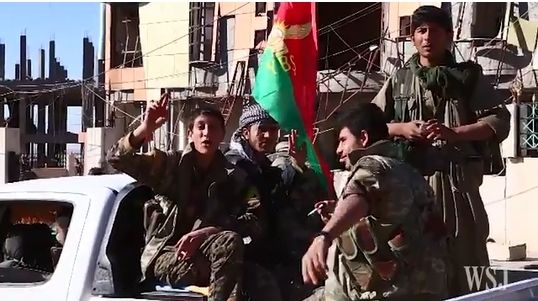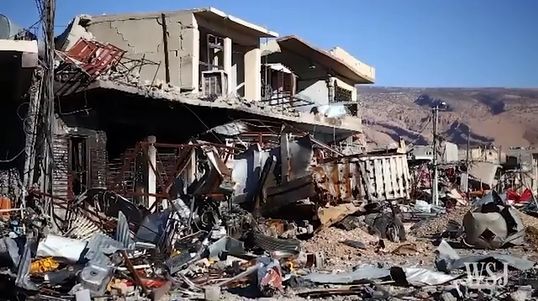 |
Kurdish Peshmerga fighters entered the city of Sinjar
in Iraq on Friday after they helped retake it from
Islamic State. AP |
At time of Paris attacks, the extremist group was suffering a setback on the ground in Iraq
After Kurdish fighters reclaimed this city from Islamic State, and the celebratory gunfire and horn honking subsided, Marwan Hussein Ali walked between shattered buildings and lamented that Sinjar would never be the same.
“The city will be rebuilt again, but life in the city will not be back,” said the 70-year-old Yazidi fighter with three dots tattooed on his left hand, a mark of his Yazidi religion. “What was done to us is something that can’t be reversed.”
“There’s real grief here,” he added.
The liberation Friday of Sinjar, a rare retreat for Islamic State, has cut a key supply line for the group and boosted the morale of its opponents. It has also provided a close-up look at how Islamic State disrupted lives and tore apart the social fabric of a place.
Islamic State claimed responsibility for the terror attacks on Paris, which came as the group was suffering military setbacks such as the one in Sinjar—losing territory to the Kurds in both Iraq and Syria. The Sunni extremists are also under pressure from an intensified air campaign by both the U.S.-led coalition and more recently, Russia.
But more such attacks are likely as long as the group retains control over a huge swath of territory in Syria and Iraq and enjoys the legitimacy this control confers on it in the eyes of many radical Muslims.
In Sinjar, Islamic State focused more on destruction than governance. In the aftermath of the Sinjar offensive, fresh Islamic State atrocities are coming to light. An officer of the Kurdish regional government forces known as Peshmerga confirmed that a mass grave with tens of bodies was found Saturday near the city, filled mostly with old women and some old men.
Meanwhile, more than a thousand Yazidi women have been kidnapped, according to the United Nations, and community leaders say many remain Islamic State slaves.
“Our girls are still imprisoned by Daesh,” said Mr. Ali, referring to another name for the terror organization. “They are sold in exchange for a bottle of Pepsi,” he said of dealings among the militants.Read the rest of the story HERE and view a related video below:
If you like what you see, please "Like" us on Facebook either here or here. Please follow us on Twitter here.






No comments:
Post a Comment